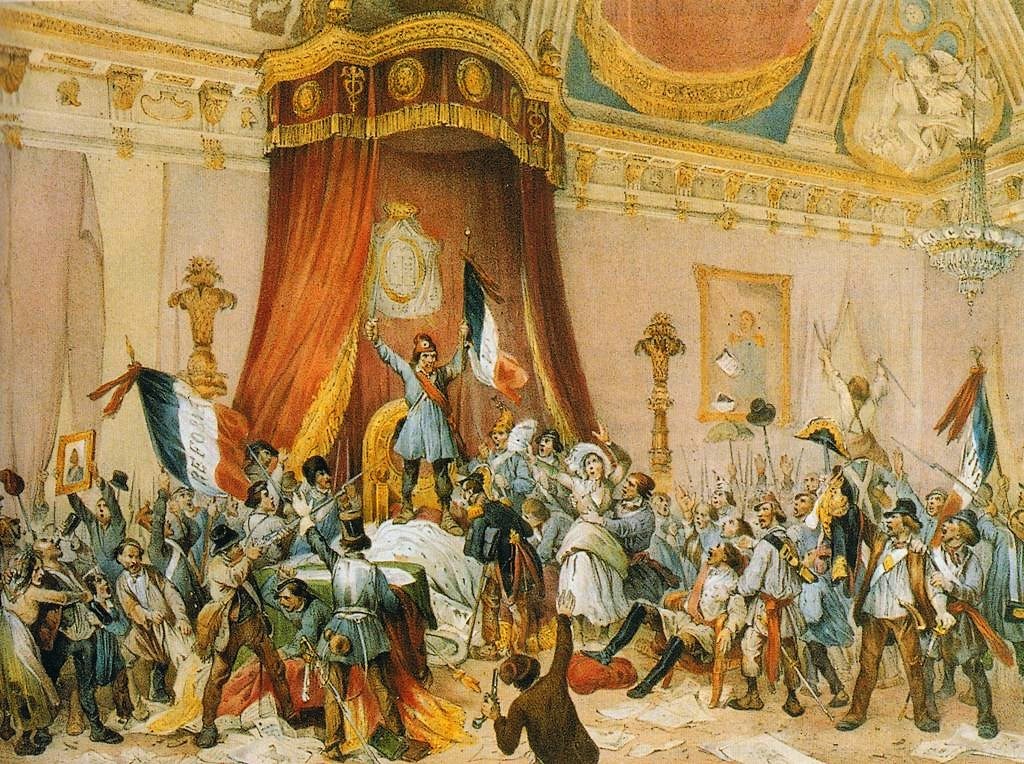Most of the recent analyses published about the US capitol’s riot do not shine as particularly subtle — to the point that public commentators seem to be racing for a “Godwin Award”.
Trump has been repeatedly called a fascist, the event was compared to Mussolini’s march on Rome and Trump to Hitler himself. Finally, some even consider the event as the birth of a form of “American fascism” originating in America’s true nature.
Moving away from these sterile invectives, this piece replaces the riot in its broader context. Rather than an isolated event, the riot is indeed best understood as another step bringing the US and the western world closer to the nightmarish reign of political extremism.
Social utopia and the dream of a new public forum: 2008-2013
In 2009, the Tea Party Movement erupted in America’s political stage. Decentralised and lacking a clear agenda, the movement acted as a powerful polarising force in the US and abroad. To this day, the debate about the movement’s true nature and racism is still ongoing. Unable to obtain any real change, the Tea Party nonetheless deeply transformed both the public debate and the republican party. The popularity of figures such as Donald Trump and Sarah Palin is simply unthinkable if the Tea Party had not occurred in the first place.
However, the movement’s consequences were not confined to the right side of the political spectrum. The Tea Party also led to a radicalisation of the left, something epitomised by the economic Nobel prize and New-York Times editorialists Paul Krugman. Shedding away alternative narratives, Krugman was very vocal on social networks about pining down the Tea Party as a mere burst of “racial anger”. And let’s be clear about it, Krugman does have a point when he insists on the movement’s racism and its noxious effect of radicalising the republican party.
In reaction to the republican party’s transformation and its systematic — and sometimes absolutely obnoxious — obstruction to Obama’s policy, the economist developed what I would refer to as the “Krugman doctrine”: the extremism of the republican party made it an impossible partner. Consequently, Obama’s strategy based on consensus and discussion is obsolete and democrats should instead opt for direct confrontation
Nonetheless, the failure of left-leaning social movements in the year 2010’s was the decisive step in further radicalising both the democrats and American liberals.
Spreading through the western world, movements such as Occupy, 15M and Nuit Debout were both a reaction to the aftermath of 2008 and a liberal response to the Tea Party. However, as I already analysed in another article, these initiatives ended-up as failures. Combined with the growing radicalisation taking place on their right, many liberals reached the conclusion that mere discussions and democracy-based solutions were unable to bring about any serious change.
The collapse of these movements was the final blow to the classic liberal’s ideal of rational democracy. Instead, the siren’s call of Krugman doctrine was unknowingly adopted, something that became far too clear with the increase of left-sponsored events forbidden to white people and/or men.
Social anger and public unrest: 2013-2020
Despite all of their shortcomings, previous movements were peaceful and based on the ideal of rational discussion. The change is especially striking looking at MeToo, Black Life Matters (BLM) and even the French Gilets Jaunes.
These movements completely abandoned the idea of creating new public forum for discussions and exchanges. I will not go into the details of these movements’ history, but what is interesting and crucial is the change in their modus operandi. Starting with a series of peaceful marches, the Gilets Jaunes and the BLM movement turned to occupation of public spaces — such as the Seattle Chaz — and rioting.
Furthermore, the radicalisation of the movements led to BLM issuing nonsensical requirement such as “Defunding the Police”. Similarly, MeToo adopted a strategy no longer based on discussion and progressive changes, but on “digital guerrilla” based on public denunciations.
In spite of the undoubtedly legitimate elements that originally fed these revolts, their strategies were counter-productive. Indeed, beyond some minor achievements, these movements’ main legacy is an ever more radicalised and polarised political stage. Indeed, the main problem of being radical and privileging confrontation is that it also turns the scared moderate against you.
We can understand this better if we look at some of the surprising supporters that Trump received in 2020. The American conservative commentator Ben Shapiro, who used to claim that Trump was not worthy of the presidential office publicly called to vote for Trump because “democrats have become nuts”. Even a classic liberal commentator such as Timcast called to vote for Trump for the same reason.
The race to political extremism has already started and in this deadly tit-for-tat game, the capitol’s riot was only the republican’s latest tat. As for the BLM and Gilets Jaunes movement, the event took the shape of a riot without any clear agenda. However, the riot took things to the next level as it flirted with revolution and violent insurrection.
Beyond the surface of their differences, these movements voiced a weirdly similar rhetoric, labelling institutions as undemocratic, rigged against the people and claiming that their tactic was the only solution to be heard by authorities and power.
Does this sound familiar? Probably, yes. Because this has become the dominant rhetoric used by all social activists, either on the right or the left side of the political spectrum.
Seeking a way out?
The presence of extremists, nut-jobs and conspiracy theorists in the crowd that stormed the US capitol is far too obvious. The event is both worrisome and dangerous for democracy. However, it is crucial that this event must be understood, not as an isolated moment, but as the latest link in the chain of events that are leading us toward the absolute reign of political extremism.
Even worse, we can already witness the preparation of the democrats’ “tit”. Joe Biden, who was already facing difficulty in controlling the radical wing of the democratic party, already climbed up the ladder of radicality. Calling black people voting trump as “not real black people”, the elected president recently compared a republican senator to the responsible for the Nazi propaganda during WWII, Joseph Goebbels.
In only 10 years, the democrats moved from describing their opponent as extremist to labelling them as Nazis. This declaration of Joe Biden would have been unconceivable in the pre-trump era: the Donald may soon be leaving us, but his method of violent barking will stay.
Since everybody is taking part to the race for a “Godwin Point”, let me bring my own contribution looking at a different and yet overlooked event: the Spartakus insurrection of 1919.
In 1919, the Spartakus revolt broke out in Berlin. Unable and unwilling to follow the communist group, social democrats turned on the side of the newly-born republic. Fragile and contested, the new regime did not have the resources to repress the insurrection and thus had to cut a deal with the devil. In exchange for the intervention of the German army led by anti-republican generals nostalgic of the empire, the social-democratic German president Friedrich Ebert promised not to clean-up public administrations from anti-republican elements nor to transform the society. Locked-up in mutual hatred, communists and social democrats’ communities were irremediably separated from each other and were thus unable and unwilling to ally when the threat of fascism materialised, ending-up in an unprecedented historical catastrophe.
The capitol’s riot main impact is going to be, somehow, similar. As for BLM turning conservative moderate against them, the event will definitely turn many liberal moderates against republicans. The great divide between political sides is getting bigger each passing day. Something that makes any real changes even less likely and further deteriorate politics — with potentially tragic consequences. As the great Spanish philosopher Ortega y Gasset pointed-out, what brought the death of the second Spanish republic and the rise of Franco was not the rejection of republicanism and democracy by Spaniards. It was their refusal of the disease of radicalism that had corrupted it.
The print from Adam Victor illustrating this paper was chosen on purpose. The similarities are striking between this print of a French commoner walking over the throne waving a French flag and the now infamous American trapper waving the American flag in the house of commons. Maybe the resemblance can help us to remember that, despite appearances, even this revolutionary tradition is something that unites us?
To wrap things-up, let me conclude with this simple but powerful quote from an episode of the tv show “Lost”: “If we can’t live together, we’re going to die alone.”
It is as simple as that.


